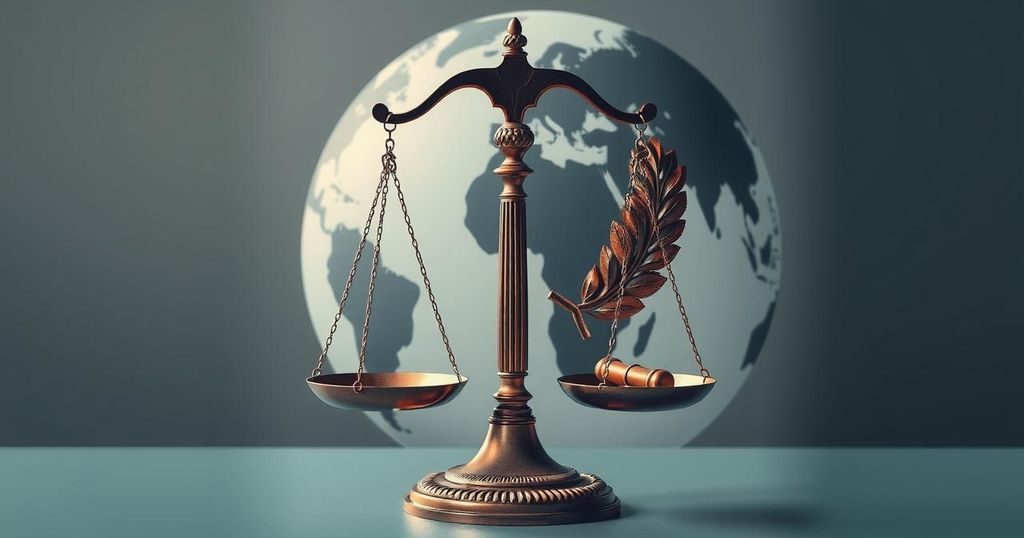At the UN Human Rights Council, NGOs highlighted severe human rights abuses in the Tindouf camps, including violence, torture, and child exploitation. Activists urged the UN to investigate and facilitate humanitarian efforts while calling for Algeria’s accountability. Morocco emphasized its commitment to human rights and received support for its sovereignty over the Sahara from numerous countries.
At the 58th session of the United Nations Human Rights Council in Geneva, various non-governmental organizations raised alarming concerns regarding human rights violations in the Tindouf camps located in southwestern Algeria. The Sahrawi NGO Promotion of Economic and Social Development (PDES) highlighted the severe humanitarian conditions endured by thousands of people over nearly five decades, emphasizing their deprivation of fundamental rights.
Fatima Ezzahrae Zouhairi, an activist with PDES, reported a deteriorating security situation characterized by rising crime and violence, which exacerbates the suffering of camp residents. She pointed out that Algeria’s failure to provide adequate security and judicial mechanisms leaves inhabitants vulnerable and without access to justice or protection.
Zouhairi asserted that the Tindouf camps’ geographical isolation from international oversight facilitates ongoing violations, particularly against women and children, who face increased risks of violence and inhumane living conditions. Meanwhile, Lemaadla Mohamed Salem Zrug from the African Network for Development, Governance, and Human Rights, recounted disturbing testimonials of kidnappings, torture, and other forms of violence against Sahrawis, highlighting the impunity enjoyed by Polisario officials.
El Fadel Braika, a representative of the NGO Il Cenacollo and a former detainee, condemned inhumane conditions in the camps, citing forced disappearances and child soldier exploitation. He also mentioned Algeria’s repressive actions against youths trying to escape the camps. Judit Segara Casasepare from CIRAC raised alarms about child recruitment in the camps, labeling the “Vacations in Peace” program as a facade for child trafficking, thus urging the UN to investigate and hold Algeria accountable.
Abdelwahab Gain from Africa Culture International echoed these concerns, condemning the indoctrination of children and their exploitation. The PDES urged the international community to intensify efforts to respect the human rights of Tindouf camp inhabitants, advocating for humanitarian aid free from political hindrance and the establishment of monitoring mechanisms to address violations.
Furthermore, the organization called for the UN High Commissioner for Human Rights to initiate a fact-finding mission to ensure adherence to international law and the protection of sequestered individuals. During the session, Morocco asserted its commitment to human rights, as conveyed by Ambassador Omar Zniber, who outlined national efforts towards promoting the rule of law and bolstering human rights legislation.
Around forty countries expressed support for Morocco’s sovereignty over the Sahara, emphasizing Morocco’s constructive engagement with the UN human rights framework. They endorsed the establishment of consulates in Dakhla and Laayoune, which are viewed as catalysts for economic cooperation and development benefiting local populations.
The allegations presented at the UN Human Rights Council underscore a profound need for intervention and monitoring in the Tindouf camps, highlighting systemic human rights violations affecting vulnerable populations, particularly women and children. The call for accountability from Algeria and the Polisario Front reflects growing international concern over the ongoing humanitarian crisis. Simultaneously, Morocco continues to assert its human rights commitments amidst the broader regional discourse.
Original Source: www.moroccoworldnews.com




